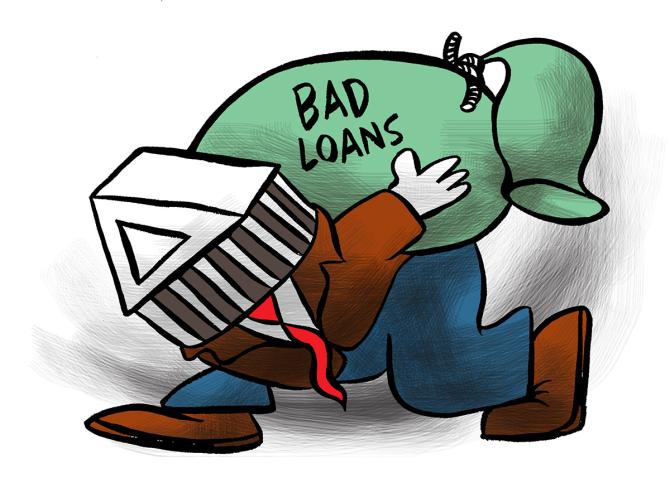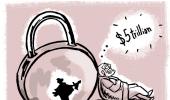Banks' bad loans might cross Rs 10 lakh crore by the end of this fiscal, mainly on account of slippages in retail and MSME sectors, a study said on Tuesday.

"NPAs are expected to rise to 8.5-9 per cent by March 2022, driven by slippages in retail, Micro, Small and Medium Enterprise (MSME) accounts, besides some restructured assets," the study by industry body Assocham and ratings firm Crisil said.
The study titled 'Reinforcing the Code' said the Gross Non-Performing Assets (GNPAs) of banks are expected to cross Rs 10 lakh crore by March 2022.
The current asset quality stress cycle will be different than that witnessed a few years back. NPAs then came primarily from bigger, chunkier accounts.
According to the study, this time, smaller accounts, especially the MSME and retail segments, are expected to be more vulnerable than large corporate, as the latter have consolidated and deleveraged their balance sheets considerably in the past few year.
Even though the restructuring scheme announced for MSMEs and small borrowers should prevent the NPAs from rising too much, there is an opportunity for stressed asset investors with expertise and interest in these asset classes, it added.
"The effectiveness of the Insolvency and Bankruptcy Code (IBC) will be tested by the potential spike in NPAs as the standstill on initiation of fresh insolvency cases for year ended in March 2021 and as most of the pandemic-induced policies or measures are unlikely to be continued," the study said.
The expected increase in GNPAs of both banks and non-banks this fiscal, because of the pandemic, will provide an opportunity for players in the stressed assets market through resolution via various routes, with IBC likely to be the most preferred.
However, the GNPAs of banks have declined from the peak seen in March 2018 and were lower as of March 2021 as against March 2020.
Supportive measures, including the six-month debt moratorium, Emergency Credit Line Guarantee Scheme (ECLGS) loans and restructuring measures were among the main reasons.
According to the study, the risk management practices of Indian banks, especially public sector banks, have scope for improvement.
In the past, laws were not in favour of lenders and allowed erring promoters to exploit the tedious recovery procedure.
This is borne out by the high number of wilful defaulters of banks, it noted.
"However, RBI has tightened norms for such defaulters and made stressed asset resolution norms more stringent.
"That, coupled with increased resolution of large-ticket NPAs under the IBC framework, have contributed to better recovery of NPAs," the study said.











 © 2025
© 2025